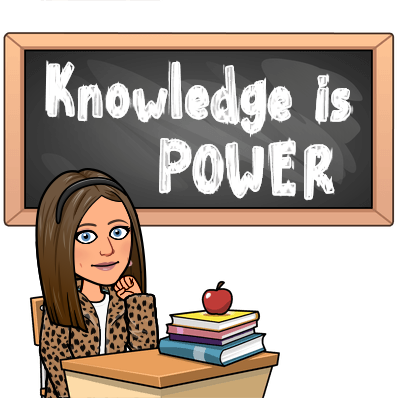Advocacy in My Classroom
- Ashley Leftwich
- Mar 31, 2023
- 3 min read

Hey everyone! This semester I am working on the course ELRC 4507: Computer Technology in Education. This week we are not only diving into technology, but more specifically advocacy. Within the topic I will be exploring these four guiding questions: 1. What does advocacy mean to you in terms of your current position? 2. Why is advocacy important? 3. In your opinion, what is one of the greatest advocacy issues facing the EdTech community today? 4. Provide an example where you advocated for a student (either K-12 or an adult learner.)
As a classroom teacher I am constantly advocating for my 5th grade math students. Generally, the advocacy I put my laser focus on is in regards to accommodations my students need for standardized testing. This could mean asking for oral administration on tests, extra time, or blank graphic organizers and providing the documentation needed to justify each decision. It also is for advocating for any learning materials my students need to help them be successful in closing their learning gaps. Without advocacy in education we are doing our children a disservice. Teachers bust walls and barriers daily to meet the needs of our learners and ensure they are legally and law bindingly getting all the accommodations they deserve to have equitable access to the content taught. With all of this in mind, arises issues that directly effect the education technology community today. There are many tools, resources, platforms, and more that are excellent sources of support to bring a whole new meaning to meeting the needs of our learners. For example, since my area is a low-income community many of my students have never been outside of our area much less to major landmarks, other states, and (even more unattainable) other countries. My colleague and I have been diligently working to create a grant for XR technology to support our learning standards in math, science, and social studies with direct correlation to reading language arts opportunities. One of the main issues we have run into is budget constraints and pricing. Many programs with the features we are looking for are excellent in interoperability, privacy, and content, but it's not feasible for us to spend $10,000 on materials and platform use annually. This is only the tip of the iceberg with other downfalls being access to a reliable and stronger infrastructure in a school district that is more rural than suburban. It's hard to provide the best of the best to students that are already coming to school without meeting the basic needs identified by Abraham Maslow. Luckily, my colleague and I are working towards starting a small program to integrate into our classrooms so that we may become experts and assist in integration at a larger scale in our community and district. With all of this in mind, I see a direct correlation with teacher burn out. In all honesty, has the constant need for student advocacy lead to much of the exhaustion and burn out we are currently seeing in public education? Why is doing what's best for students often followed by an uphill battle?
Just my food for thought to leave you with this week. Thanks for reading!
Work Cited
Bonus Material! Click here for a sneak peak at my Wakelet featuring different tools chosen from EdSurge and rated on interoperability, data and research, privacy, digital pedagogy, usability, and accessibility.



Comments